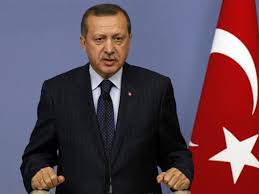Nuclear Weapons 348 - Turkeys Nuclear Ambitions - Part 2 of 2 Parts
Erdogan of Turkey.jpg

Part 2 of 2 Parts (Please read Part 1 first)
Mark Hibbs, a nuclear expert, also says that Turkey lacks the necessary technology. Turkey also does not have the IAEA safeguards. The IAEA says that they found no evidence of clandestine nuclear activities during its reporting processes. While Hibbs may have documented his conclusions well, the difference in the international climate brought about by the election of Donald Trump between 2015 when Hibbs was researching the Turkish nuclear ambitions and 2018 are very significant.
Currently, NATO appears fractured following the recent disastrous NATO conference where Trump challenged the funding and very existence of NATO. Russia has been assertive and confrontational since it annexed the Crimea. With respect to nuclear issues, Iran signed a nuclear treaty called the Joint Comprehensive Plan of Action with the U.N. Security Council’s five permanent members and Germany. Trump has unilaterally withdrawn the U.S. from the treaty and it appears that the whole agreement is collapsing. On the other hand, Trump has rewarded North Korea for its nuclear program and threats by sitting down with the N.K. leader and claiming that N.K. was no longer a nuclear threat.
Given this international situation, the possibility of nuclear proliferation has increased. There is talk of a nuclear “domino effect” as more and more countries seem to be interested in nuclear weapons programs. The probability seems to be that one country in the Middle East will begin developing nuclear weapons and other states will quickly follow. The prime candidates for such a move are Iran, Saudi Arabia, the United Arab Emirates, Egypt and Turkey.
It is clear that the internal situation in Turkey is more conducive to nuclear proliferation than some of the other candidates. President Erdogan was granted new powers to rule by decree after the 2017 referendum and his 2018 re-election. The 2016 attempt at a coup gave him an excuse to purge the military and defense agencies of people who might disagree with and resist dramatic domestic strategic changes.
Taken together, the new centralized political system, future access to a nuclear fuel cycle, a big investment in delivery systems such as missiles, and the current international situation where proliferation is rewarded makes it much more likely that Turkey will begin its own domestic nuclear weapons program. International security is mainly a matter of deterrence, especially nuclear deterrence. It seems probable that Turkey is at least considering, if not actually planning, the acquisition of nuclear weapons.
Erdogan is playing a dangerous game walking a tightrope between being allied with the U.S. and being allied with Russia. It has recently had confrontations with both and has reached out to both. It is obvious that Turkey aspires to be one of the “great” powers in the Middle East and that nuclear weapons would definitely support that ambition. The political situation in Turkey is unstable with Erdogan working on creating a dictatorship and opposition forces taking to the streets in against Erdogan’s ambitions. Introducing Turkish nuclear weapons into the volatile situation in the Middle East would only increase the danger of war.